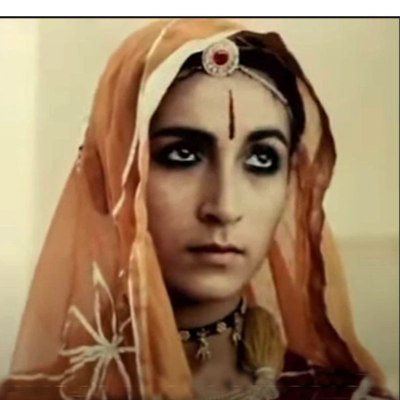This section is for paid subscribers only. Our subscription is only $3700/- for one full year.
You get unlimited access to all paid section and features on the website with this subscription.
Subscribe to read full article
This section is for paid subscribers only. Our subscription is only $37/- for one full year.
You get unlimited access to all paid section and features on the website with this subscription.
Not ready for a full subscription?
You can access this article for $2, and have it saved to your account for one year.
- GenreDrama, Experimental
- FormatColour
- LanguageHindi
- Run Time83 min
- Gauge35 mm
- Censor RatingU
- Censor Certificate Number74160 - MUM
- Certificate Date31/12/1973
Duvidha is a tale of oppression, desire and love. It is located in an unknown village of Rajasthan. The story starts with a bride who is coming to live with her in-laws, the day after her marriage. The bride and groom decides to rest under a banyan tree. The tree is possessed by a ghost. The ghost notices the bride and falls in love with her. He feels a certain kind of emptiness and gloom in the presence of the bride. The bride has accepted the fate of sacrificing her old life by accommodating herself in the new patriarchal home. The groom doesn’t pay much attention to her as he is busy handling some affairs related to his business trip. Next day, he announces that he will be leaving for town to make trade and will not return for five years. He tries to make her understand about the sanctity and purity of their matrimonial bond and that, him being away for five years will not affect their physical or emotional relationship because they are going to spend the rest of their lives together anyway. This shatters the already broken spirit of the bride as he is about to leave and the unbearable weight of solitude takes over her.
While the groom is on his way to the town, he passes the banyan tree. The ghost decides to impersonate the groom and goes to Seth’s (groom’s father) house as his son. He tells him that on his way to the town, he met a saint who told him that if he doesn’t go to the town and return home, he will receive five gold coins every morning. Seth falls for his trap out of greed. As the ghost encounters the bride for the first time, instead of hiding his intentions, he confesses everything to her. Both of them are suffering from the misery of aloneness which is spiritual and existential in nature. The bride doesn’t stop him from staying with her. As the time passes by, they build an intimate and caring relationship with each other based on love. Her real husband, who is still working in the town is informed that his wife is pregnant. He thinks that the people of the town are jealous of his success and are trying to get into his head. But he decides to leave immediately to confirm the rumour.
As he returns to the village, everyone is shocked to see two similar looking men. While the bride is in labour, the groom tries to convince his father that he is his real son and the man in their house is an impersonator. Seth warns the groom to leave their village and stop all his attempts of fooling him. But the villagers intervene into the matter and suggests that Seth should send both men to the king. While on their way to the kings palace, they are stopped by a shepherd who assures them that he can handle this issue by himself. The shepherd takes some tests and captures the ghost in a water bag. They throw the ghost in a well from where he can’t escape. The real groom returns to the bride who has given birth to her ghost husband’s son. The real groom forgives her as he thinks that she was not aware about the intentions of the ghost. The ghost was her last hope for experiencing freedom, desire and love. Now that he was gone, she decides to become a good wife and closes herself forever to the oppressive society by mindlessly following all their rules.
Cast
-
Raissa Padamsee
Bride -
Ravi Menon
Merchant's son
Crew
-
BannerFilm Finance Corporation , National Centre for Performing Arts , Rupayan , Vision Actions Workshop , Sansthan
-
Director
-
Music Director
-
Director
-
Story Writer
-
Screenplay
-
Cinematography
-
Editing
-
Sound Recording/ Audiography
-
Re-recordist/ Sound Mixing








.jpg)



